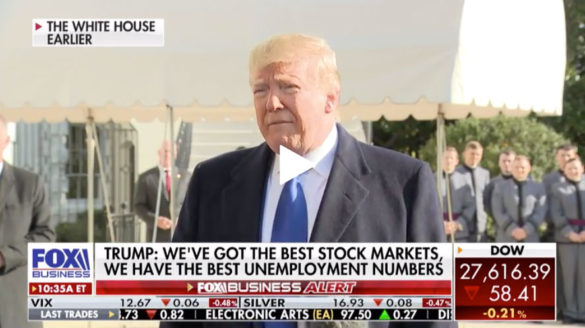
Curtis Ellis: When will the US roll back China tariffs? When Trump says so
President Trump’s negotiations with China provide a master class in communist China’s use of influence operations as a negotiating strategy.
The Chinese Communist Party believes a democracy is easy to manipulate and ever since President Trump increased tariffs on China, Beijing has mounted a relentless influence operation to roll them back.
Michael Pillsbury, author of “The Hundred Year Marathon” and Hudson Institute China expert who advises the Trump administration, has described how Beijing employs the classic Chinese military strategy of “use your enemy’s forces against him” to gain the upper hand in trade talks.
Last May, everyone was confident Beijing and Washington had reached an agreement. This followed multiple rounds of talks during which proposed tariff increases had been postponed.
But at the last minute, China pulled back.
Western executives who have done business in China are familiar with this behavior. The last minute reversal is a ploy to extract further concessions.
Western executives who have done business in China are familiar with this behavior. The last minute reversal is a ploy to extract further concessions. Negotiators across the table, already eager to break into “the China market,” exhausted by lengthy talks and emotionally invested in an agreement are primed to accept less-than-ideal terms in order to ink a deal they had told the home office was imminent.
But President Trump and his team did not fall for that ploy.
It appears China then launched an influence campaign to take advantage of divisions within the administration and the United States. Coverage of the trade talks shows how the Chinese Communist Party has used our news media, political divisions and our financial system to achieve its goals.
Markets reflexively move higher on reports from unnamed sources that “a deal to end the trade war is imminent” and slump on “negative” news.
Then, as day follows night, experts will tell us a strong American economy depends on making a deal, any deal, with China now, no matter what.
Forget about spin – these are the facts: More Americans are working than ever before. Wages are rising. Trade deal or no deal, the American economy is strong.
Peter Navarro, the director of the White House Office of Trade and Manufacturing Policy, says the only person who will make the decision to remove tariffs on China lives in Washington, not Beijing.
His name is President Donald J. Trump.
And President Trump says the U.S. has not yet agreed to a rollback of tariffs.